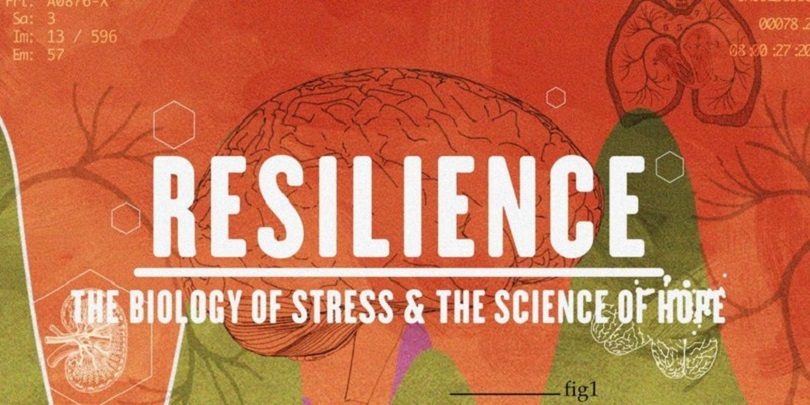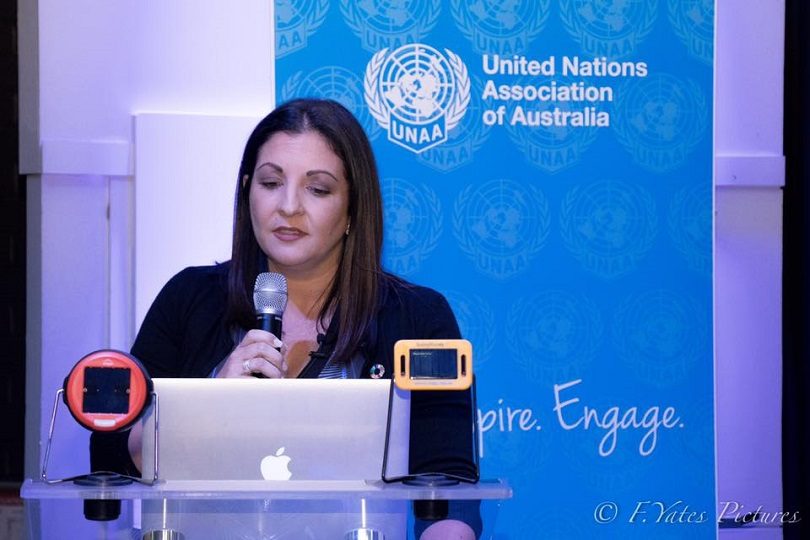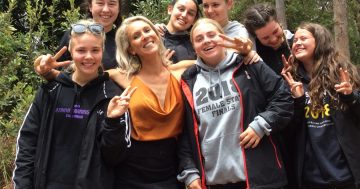
On 11 April at 6 pm at the National Film and Sound Archive, Canberrans will have the privilege of attending the exclusive premiere of the film Resilience. It’s a cutting-edge documentary based on 21st-century scientific research that exposes the simple root cause of many ailments. It equips us with the tools we need to positively change our lives, even in circumstances that seem to be impossible.
Meet Kate Seselja. She is a Canberra mum of 6 who shares the story of her recovery from her gambling addiction with Eco Stylist, Nina Gbor. Kate founded The Hope Project to help others who are facing mental health issues and emotional struggles, and she tells Nina about the personal philosophy that motivates her and how she is working to shift the culture around talking about and recovering from trauma.
Posted by The RiotACT on Saturday, April 7, 2018
Many of us have grown up in, or experienced trauma either at childhood or at some point in our lives. I’ve always wondered why it’s been a kind of social taboo to talk about emotional, mental and social struggles, as I’ve always seen it as a pathway to healing, understanding and growth, particularly when the intention is there. Some of us hold back because of a sense of shame that we have either put on ourselves or allowed others to make us feel.

Kate Seselja helps people struggling with mental and emotional issues to thrive. Kate believes that by supporting people to identify and admit their struggles, they can prevent crises. Kate believes and lives by the quote, “No one should ever be judged or chained to the guilt, pain, and shame of the past. As a society, we should be encouraged and supported to reclaim our unique lives and contribute positively to society – Restore Hope, and Kindness Follows.”

Kate is the Founder of The Hope Project and a Certified United Nations Advocate for the Sustainable Development Goals target #3: Good Health and Well Being for all. Kate is a former gambling addict who nearly took her own life after her addiction spiralled out of control, leaving her deep in debt with unsurmountable mental and emotional despair. As a phoenix rises from the ashes, so Kate rose to turn her life around, and now not only helps individuals, but has succeeded in making conversations about human struggle more common.

On the 11th of April at the National Film and Sound Archive, Kate will be hosting the screening of the film Resilience. It’s a powerful documentary that delves into the science of Adverse Childhood Experiences (ACES) and our growing efforts to treat and prevent Toxic Stress. Resilience shows the concept of using 21st-century science to counter the defeatist belief that many of us have regarding the irrevocability of the impact of negative chilhood experiences.
The outcome of scientific research from medical practitioners who made the film states that adverse childhood experiences are more common than we realise. Exposure to trauma like neglect, substance abuse, sexual abuse, domestic violence and physical abuse affect children’s developing brains and physiology. As we become adults, we may not remember past events, but the body remembers. The impact of the trauma is on the behaviour, heart and DNA of the individual. These adverse childhood experiences can cause heart disease, lung disease, liver and cancer in the long run. Their research also states that these individuals are 3 times as likely to suffer depression and twice as likely to develop heart disease and have a 20-year lower life expectancy.
As a holistic new body of knowledge and science that could change all that we’ve previously seen as intractable problems, Resilience aims to get this science to the general population to change and save lives.
Get tickets to the exclusive premiere of Resilience here.
The Hope Project: https://thehopeprojectnow.com/
Facebook: @thehopeprojectnow
Instagram: @the.hope.project
Twitter: @seselja_k















